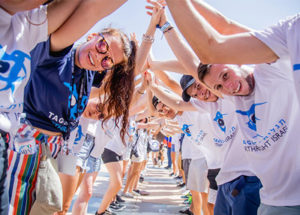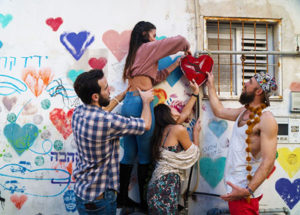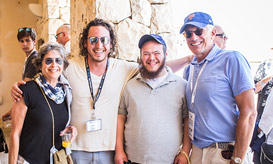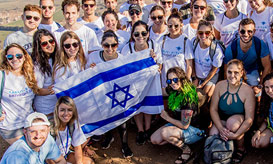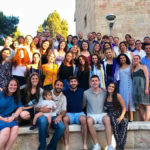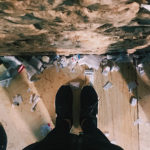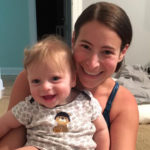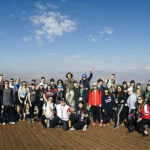In this week’s edition of What Alumni Are Saying we’re hearing from participants from New Jersey.…
A 32-year-old mom of two takes a Birthright Israel trip and finds she has something to learn from her young companions.
Other than the fact that I’m a sucker for anything free, I wasn’t entirely sure what compelled me to go on Birthright’s pilot trip for Jewish men and women in the advanced age range of 27 to 32.
As a veteran of yeshiva day school who had visited Israel before and an observant Jew, I wasn’t in Birthright’s target demographic of unaffiliated Jews whose knowledge of Judaism and connection to Israel is minimal. In a committed relationship, I had zero interest in the legendary partying and hook-ups that had long been Birthright lore.
In fact, as a 32-year-old mom of two, I was also not only the oldest participant chronologically on this trip, but one of the oldest with regard to life experience. Before even going on the trip, I already felt superior to the callow youth who were sure to be my co-participants. I find myself growing increasingly crotchety as I get older, and I shrunk at the thought of a week of “getting to know you” icebreakers and singing kumbaya around the campfire. I imagined myself having to pretend to tolerate a bunch of overgrown frat bros and girls who took an hour to straighten their hair before setting off for a hike in the Negev only to complain about the humidity, and almost backed out.
Alas, as hordes of skeptical Jews before me, and approximately 1,000 icebreakers later, I totally lapped up the kosher Kool-Aid (“tastes like Zionism!”) and had the experience of a lifetime.
Aside from the beauty of experiencing Israel through older and wiser eyes, I was also forced to tolerate other people—including some more frat bro-like men and women who did frequently whip out their flat iron—who were completely unlike me and from whom I thought I’d have nothing to learn or gain for an entire week. Apart from our more annoying and difficult colleagues at work, few of us are compelled to spend significant amounts of time with people entirely different from us and those who we would normally avoid. We choose our own friends and decide to which synagogue and community we belong, leaving scant opportunity to broaden our horizons by connecting with people we might initially write off.
There were evenings on Birthright where all I wanted to do was sit and sleep or stare mindlessly out the bus window to take in the beautiful Israeli landscape. But my plans would be disrupted when someone took the seat next to me on which I had carefully laid a book as a deterrent, insisted on talking to me, and by the end of the ride annoyance at the disturbance would give way to connection with someone who walks a completely different path than I do.
There was that time after a sweaty hike up Masada that I discreetly sniffed myself and cringed, and then I caught the person in the next seat doing the same, and we laughed and talked about how our drawstring bags of disgusting laundry would soon grow by one more pair of sweaty shorts. It wasn’t the beginning of a beautiful friendship, but it was a nice moment of common ground.
There was that afternoon by the Kotel where I cried a little bit watching some of my co-participants get feted at their makeshift bar and bat mitzvah celebrations as random Israelis spontaneously joined our hora dancing.
Perhaps the most moving part of the trip for me was witnessing others who had come to Israel with less in the way of formal Jewish education or background than I had, choke up at the Kotel, marvel at the hospitality of Jewish families opening their homes for a Shabbat meal, or celebrate their bnei mitzvahs, things I have always taken for granted. It helped me understand the Chabad rabbis, like the one leading our trip, who devote their entire personal and professional lives to achieving that one transformational moment on which people pivot from living lives of mostly lackluster Jewish connection to one of pride and meaning in being a part of the Jewish people.
I don’t think I would have appreciated that when I was younger.
What I would have appreciated is my former reserves of youthful energy. Birthright’s activities, many of which are physically demanding, probably best suit younger folks who still have iron stomachs, zero lower back pain and heads that won’t threaten to explode following a night of bar-hopping in Tel Aviv.
By the time I was on the flight home sandwiched between two new friends who I felt like I had known for years, I was reminded how vitally important it is to occasionally step outside our carefully constructed horizons and be open to the possibility of expanding them. It’s still true—maybe especially true—when you’re a 32-year-old alte kacker who sneered her way through the first 800 Birthright icebreakers.

